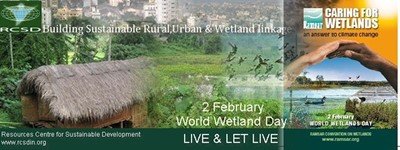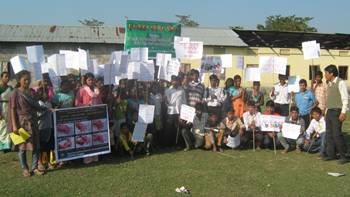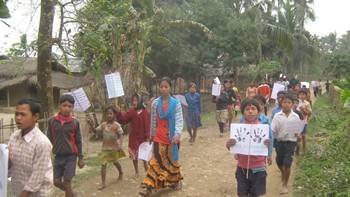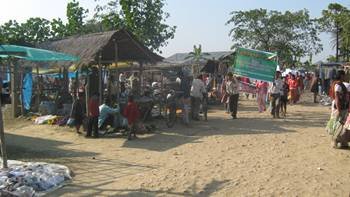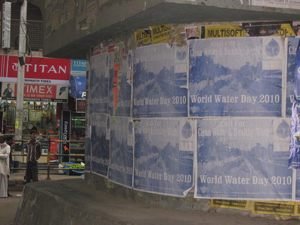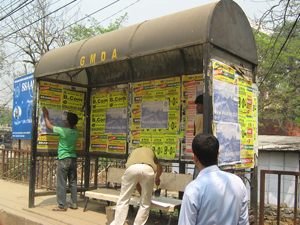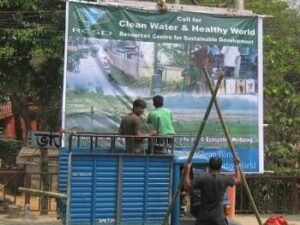To celebrate the World Water day 2011, RCSD is organizing a series of Water Sanitation & Hygiene Campaign in Schools in its project villages with an objective to bring about a reduction in the water borne disease amongst rural households covering a series of wetlands in the flood plains of middle Brahamaputra valley
The day long event comprises of poster & eye catching placards, art work and graffiti preparation by children’s on issues that they feel is affecting their daily health and the local environment.
Thereafter children’s zealously take part in a rally displaying their thoughts on the play cards, raise slogans and shares their views walking within the village pathways and the village markets raising awareness towards a behavioral change.
RCSD undertook an electronic campaign amongst NGOs, concerned Govt. Dept, electronic and print media covering the seven North Eastern States, including Sikkim of India on issues concerning Clean Water and Healthy World. In addition to the above activity the organization undertook a poster campaign to catch the attention of the public and Legislators at Guwahati (Assam), Dhramnagar (North Tripura) and Imphal city (Manipur) on the water and environment nexus. The poster campaigns at Imphal city could draw the involvement of Church leaders, College Students and three NGOs into the campaign, and a local NGO (MNPCRC) after the e-campaign have come forward to address liquid waste management at Iril river which is the major freshwater lifeline in Manipur.
The E-campaign message: The world is facing a major challenge in meeting freshwater demands of 6.756 billion people , which is expected to reach 9.1 billion by 2050 (un.org). People are using over half of the world’s accessible freshwater resources today, and may nearly use three-quarters of global fresh water reserves to meet increasing per capita use. Water demands generate substantial waste water, polluting groundwater and surface water, severely affecting the regulatory and environmental function necessary for sustenance of our ecosystems. With current consumption patterns, water resource management and Global Change, at least 3.5 billion people, nearly half the world’s projected population is anticipated to live in water-stressed river basins (Brahmaputra, Ganges, Indus, Danube, others) by the year 2025. India the second largest populous country in the world with potentials to outnumber China by 2050 will face a major fresh water stress.
Thus to address the upcoming global water crisis, RCSD urges attention of all public, private & Govt. stakeholders towards CLEAN WATER & HEALTHY WORLD.
Ecosystems are the planet’s life-support systems and human health is strongly linked to the health of ecosystems to support the needs of human biology for food, water, clean air and relative climatic constancy are basic and unalterable. Approximately 60% of the global ecosystem benefits to support life on Earth are being degraded or used unsustainably. Degradation of wetland fisheries and agro-ecosystems are factors in the malnutrition of some 800million people around the world. While water-associated infectious diseases claim 3.2 million lives, approximately 6% of all deaths globally.
Assam, India is dotted with innumerable fresh water wetlands (locally called beel) and ox-bow lakes (era suti), covering a total area of 101 232 ha in 3 513 wetlands, which plays a significant role in flood attenuation and other environmental functions and in the state’s rural economy. The ever increasing loss of natural floodplain wetland ecosystem of Assam to land reclamation, land use change and pressure for natural resources by an ever growing population and natural hazards is leading to serious environmental and ecological concerns.
On the World Wetland Day we take the opportunity to request every one to join hands to undertake actions aimed at raising public awareness of wetland values and benefits in general and the Ramsar Convention in particular for the “wise use” of all wetlands.
Please visit World Wetland Day
